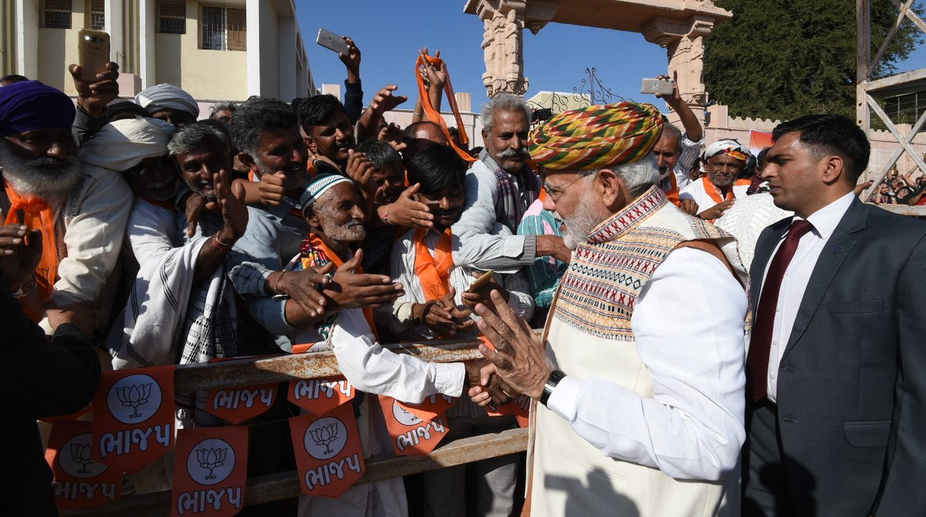Rahul can retain Wayanad, albeit with a reduced margin
The CPI has fielded its senior leader, Annie Raja, against Rahul Gandhi while the BJP’s Kerala unit chief, K Surendran, is also in the fray thus making it a three-way battle

(Photo: Twitter)
Like most of the Indian states, a large part of the population still lives in rural areas and constitute a substantial part of the electorate which can’t be ignored by the political class.
In Gujarat, the last election of 2012 saw Bhartiya Janata Party (BJP) winning in 44 seats and the Congress winning 49 seats out of the total of 98 rural seats in the state. The Congress did better in the rural areas with 42.1 percent vote share whereas the BJP did better in cities scoring 42.9 percent vote share in 2012 elections.
This time around both Congress and BJP have gone out of their way to woo the rural electorate. The BJP in its manifesto has promised interest-free farm loans, cheaper seeds and fertilizers, crop insurance, improved minimum support price for farm produce and doubling of farm income. Whereas the Congress manifesto talks of providing uninterrupted electricity for 16 hours for the farmers, free water for irrigation, improved crop insurance and farm loan waiver.
Advertisement
A large part of the rural population relies on agriculture and with rising fuel costs the overall agricultural costs have gone up, thus causing immense pressure on farmers to either sell land or find other sources of income. Alternative income options are also limited in the villages and there is widespread discontent for the government, for the failure to address these issues.
The farming community in the state has also been under stress due to poor lower prices of farm crop like cauliflower, bajra, maize, and even cash crops like cotton and groundnut. Even the traders in the wholesale markets like agriculture produce market committee (APMC) are facing a cash crunch and price pressure due to the effects of demonetisation and the implementation of goods and services tax (GST).
Apart from the economic issues the agitation by the Patidar Community for reservation has also created a negative wave for the incumbent BJP government in the state.
Advertisement